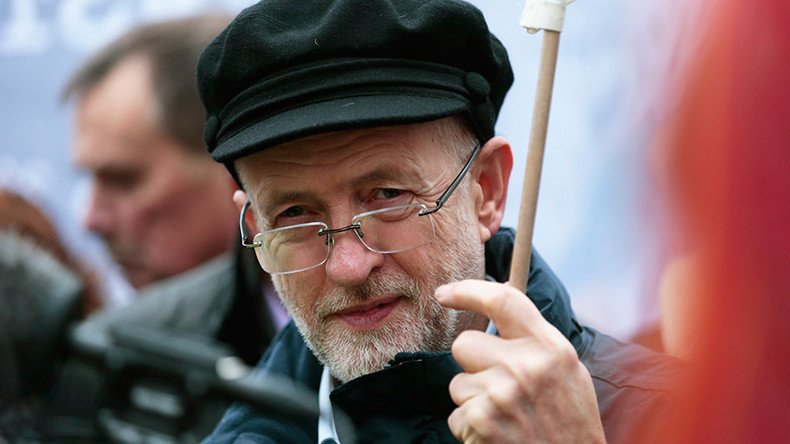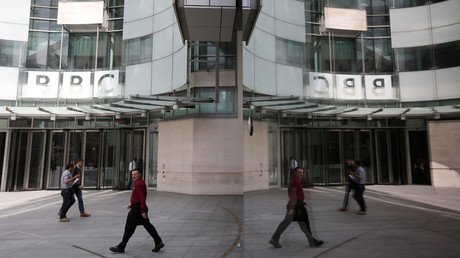US, NATO ‘very nervous’ about Corbyn’s disarmament plans – reports

US and NATO officials are “very anxious” about Jeremy Corbyn’s policies, specifically the Labour Party leader’s aim to scrap the UK’s four Trident-armed submarines, as well as his “support for Russia.”
According to a senior government source asked by The Independent on Sunday, foreign diplomats had voiced fears about Jeremy Corbyn’s agenda to pave way for nuclear disarmament, and also his settled approach towards NATO-Russia relations.
In August 2015, Corbyn, then the left-wing frontrunner in the Labour leadership contest, used the 70th anniversary of the US atomic bombing of Hiroshima to declare that if he were prime minster he would not replace the Trident nuclear weapons system and would get rid of nuclear weapons entirely.
“Britain should accept that such weapons are impossible to use with any guarantee of safety and we should scrap plans for renewing the Trident nuclear [defense] system, freeing up £100 billion to spend on our national wellbeing,” said his policy paper, entitled “Plan for Defense Diversification.”
Speaking to the Independent, former NATO Secretary-General Lord Robertson confirmed that there was “a great deal of nervousness” among the alliance’s members, who see Britain’s nuclear capabilities as a security guarantee.
“It’s coming from the Americans, but other countries too. People forget that the British deterrent, as well as the American deterrent, is committed to NATO.”
In a clear intervention in domestic UK politics, Lord Robertson said that Corbyn’s policies would damage Labour’s chances of winning the next general election in 2020, because of the party’s “increasingly radical stance” on defense and security issues, The Telegraph reported.
His comments came after Labour MP Madeleine Moon, also a member of the House of Commons defense select committee, told a private party meeting she was approached by NATO diplomats in Washington.
“So many delegates wanted to speak to me about the Labour Party and the stance we are taking on NATO and Trident. They were very, very anxious,” she said.
Countries in Eastern Europe rely heavily on the nuclear deterrent the UK has, Moon said, and they are “nervous about what they are hearing,” citing “much more assertive, aggressive and belligerent Russia.”
Corbyn is a long-standing advocate of peace and nuclear disarmament, saying in one of his interviews that opposing violence and war has been “the whole purpose of his life.” As chair of the Stop the War Coalition, he campaigned vigorously against the wars in Afghanistan and Iraq. In 2014, when the Ukrainian crisis unfolded, he wrote an article in the Morning Star, arguing that the main cause of the war was rooted in "the US drive to expand eastwards."
Anonymous general who predicts anti-#Corbyn mutiny should be named by #GCHQ – SAS veteran http://t.co/zmoB52vHeepic.twitter.com/S7XLFvjxQu
— RT (@RT_com) September 21, 2015
A year later, when NATO-Russia dialogue deteriorated, he told parliament that “there would be a better chance of reaching some kind of agreement with Russia if there was a clearer statement that NATO does not intend to expand into Ukraine, and that in return Russia should withdraw from its border regions.”
The latest YouGov poll suggests that Corbyn’s policies on defense issues are opposed by a majority of voters. Sixty-seven percent said “No” to Britain leaving NATO, while 65 percent and 52 percent, respectively, oppose significant defense budget cuts and scrapping the Trident missile system.













